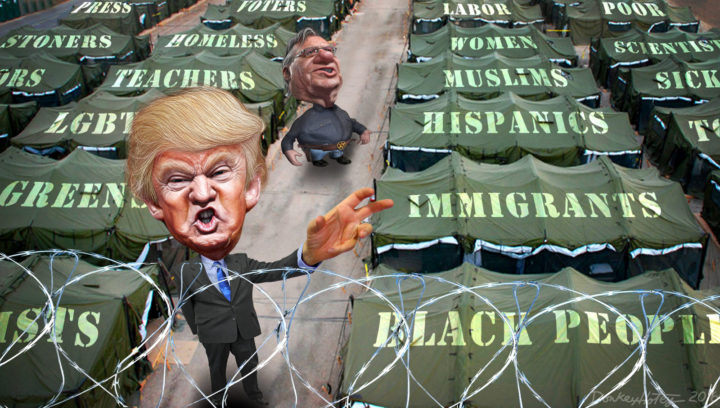By Arturo Ignacio Sánchez
Donald J. Trump’s election as president-elect of the United States is a defining moment for the United States and the world. The Trumpian triumph, simply put, represents the unraveling of the post-World War II regime that defined the “American Century” and the contours of the global economic system.
In effect, what does this mean for the United States and for the world? For North Americans, it means that the remaining elements of U.S. political and economic liberalism are in the process of being dismantled. Nonetheless, this is not a uniquely U.S. phenomenon. Trump’s emergence and his political and economic project represents a crisis of the existing regime at the global and national levels.
The growing systemic malaise is evident in the rise of exclusionary populist movements in the western world and the disillusionment with the existing order. At the global level, this sense of systemic and populist disenchantment is linked to the growing demise of Pax Americana, the inequities of a neoliberal global regime that generates hyper levels of socio-economic inequality, the tarnishing of prevailing institutions, and the weakening of traditional notions of national sovereignty.
This perfect toxic storm was scaled-up by the 2008 financial crisis which ushered in a host a global and national economic contradictions that further destabilized the existing post WW II order and gave rise to resurgent forms of crude nationalism and calls for fundamental change in the European Union and selected nations in the global South.
The loss of purpose and the notion of American Exceptionalism has been battered by these merging global realities. And this resulted in a populist push back – to “make America great again – along vague Trumpian lines. This resurgent nationalism and the nostalgic return to a “paradise lost” can be understood as reactionary social movement that emerged in response to the demise of the so-called “American Dream” that was marked by systematic limitations and hollowed out by an elite dominated political economy that engineered growing levels of economic expulsion and anxiety.
In the United States this resulted in a populist rejection of a mainstream political and economic system that favored the few over the many. Unfortunately, this resurgent and reimagined U.S. nationalism is marked by a narrow conception of what constitutes the national good. Instead of erecting an inclusive national tent, that revolves around a notion of social justice, the Trumpian vision presents a harsh and ethno-nationalist reactionary program of exclusion and demonization.
The U.S. is clearly a divided society torn apart by growing class divisions and a dramatic loss in overarching integrating beliefs. And this will be – in the long run – Trump’s soft political underbelly. If he responds forthrightly to his political base, he will further accentuate the fissures in the country’s economic and political landscapes. And in an alternative scenario, if Trump modulates his most strident political economic proposals, his base of “true believers” will push back and demand he fulfill his electoral promises. Clearly this does not bode well for the country or the world. It merely sets up an ongoing politics of confrontation and reinforce a growing level of national balkanization. In short, to quote the words of the poet, W.B. Yeats: “Things fall apart; the center cannot hold.”
Arturo Ignacio Sánchez, Ph.D. is an urban planner and a member of Community Board 3, Queens. He has taught at Barnard College, City University of New York, Columbia University, Cornell University, New York University, Pratt Institute and various Latin American universities










